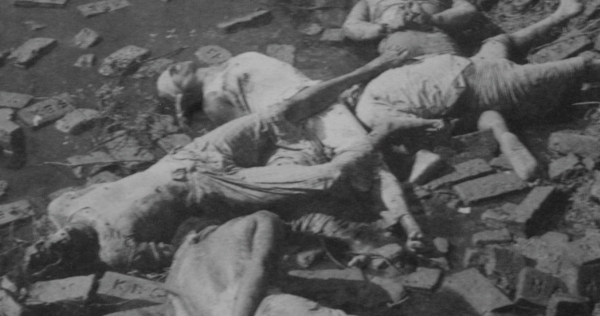| Home - Back Issues - The Team - Contact Us |
 |
| Volume 11 |Issue 12| March 23, 2012 | |
|
|
Star Diary Entries from 1971 I remember two intriguing events that took place in 1971. The first one was when the razakars came to arrest the noted intellectual, Shahidullah Kaisar. I used to live in a house right opposite to his in Kayettuli. When we hear loud noises, my siblings and I rushed to the door and were peeping through the door. Kaisar was eating and wanted a moment, just to wear his shirt, before they took him away. They however, didn't permit him to do that. He was taken away immediately. My second story is regarding a flying vehicle that crashed nearby our place. I don't quite remember if it was a helicopter or a jet, but it was big news in the community. That crashed site was something that we all talked about and went to before and after school. It was something that constantly reminded us regarding the threatening situation that we all were in and always kept us alert. Although forty odd years may have passed by ever since the war, I still feel like it was just yesterday when my siblings and I had to find a new hiding place every time the Pakistanis came to my area. Dilruba Begum
A Freedom Fighter in Disguise During the war of 1971, we left our house near Mymensingh railway station. We moved from one village to another, seeking shelter in houses of strangers. Our father, a rail officer, could not join us because he had to report to the rail authority; at least that was what he told us. Yet he used to keep in touch with us somehow. However, we stopped hearing from him for quite sometime. We grew quite worried and started looking for him through different sources. No one at the rail office could say as to what happened to him. Later on, we came to know that a warrant had been issued against him for smuggling a train boggy full of weapons to the freedom fighters. So he was on the run. For months, we lived in uncertainty, often giving up the hope of his return. I do not remember exactly when he came back, but he was no longer the father I knew. He was almost like a ghost, driven to insanity after months of hiding in jungles and living on leaves and roots. He could not recognise us. It took months of patience and extreme care for him to get over the trauma. I sometimes feel very fortunate that unlike many of my friends, I was lucky to get my father back and live with him in a free land — a land he secretly fought for. Reena Khan A Lonely Tomb There is a lone Christian grave at the wall adjacent to the hostel I live in. A clerk of our school told me the story of the unfortunate soul buried in that tomb. Towards the end of the Liberation War of 1971, a Danish cargo ship was anchored in the Mongla port for business purpose. India had already joined the war officially and fighter planes were bombing places occupied by the Pakistani army. At that time, rumours spread that the US would send their Seventh Fleet to help the Pakistanis win the war. Indian fighter planes mistook the Danish cargo ship for enemy ship and started to bomb it. However, local freedom fighters knew that it was not an enemy ship. So with the help of the bede community, they went to rescue and evacuate the crew from the ship. With the ship on fire, the crew did not have time to untie their life-boats. They jumped from the deck into the bede wooden boats. While doing so one an engineer of the Danish ship fell head down and hit the side of the boat breaking his neck. Even though he was brought ashore, lack of proper medical facilities caused his death. In the midst of the war, he was hastily buried in the ground adjacent to our hostel. The story touched my heart because I was thinking of the Danish engineer so far away from his family and home meeting his end at a war which was not even his own. May be this is called irony of fate. Supriya Christina Gomes Copyright
(R) thedailystar.net 2012 |
